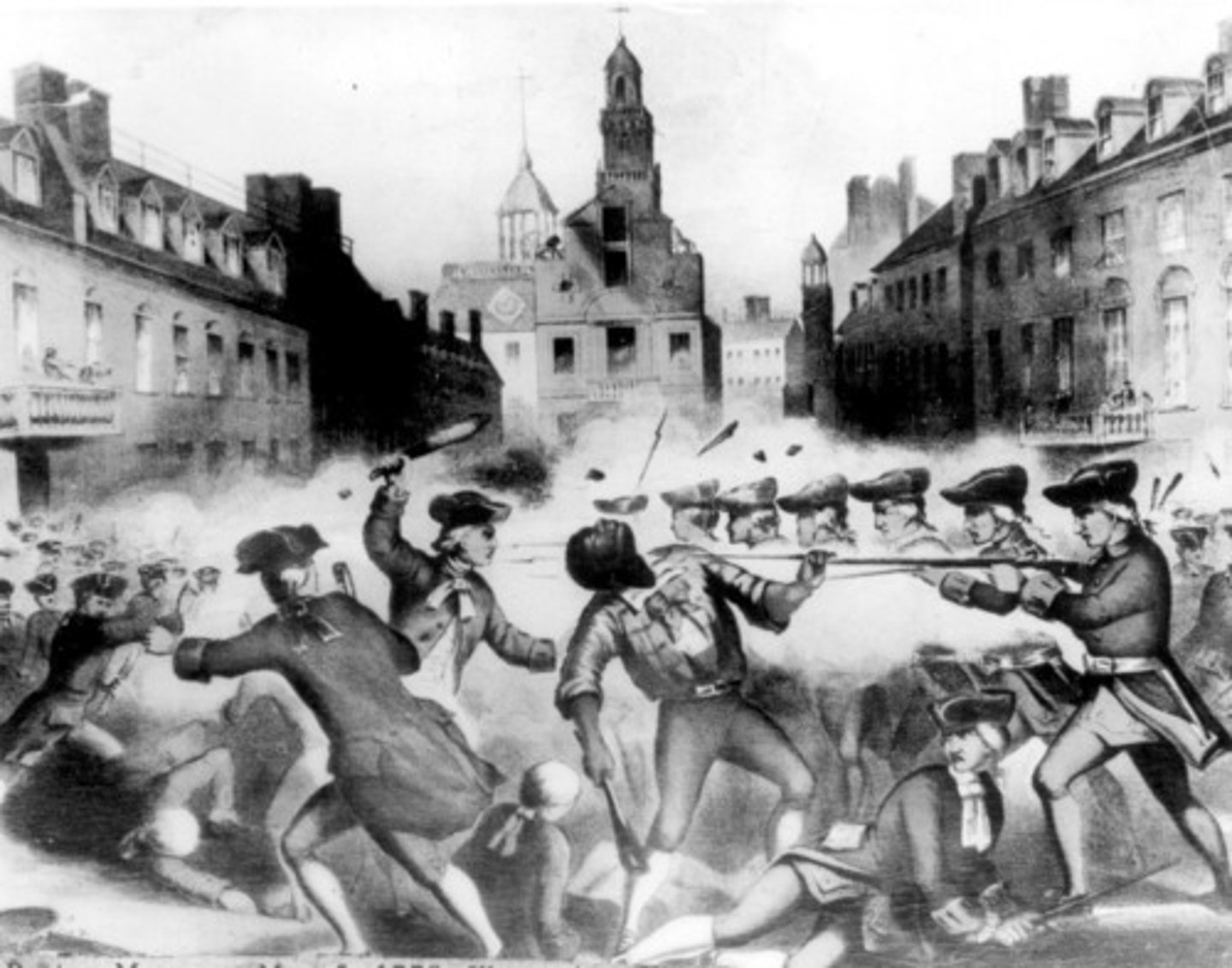unit 1 Quiz american history
1/34
There's no tags or description
Looks like no tags are added yet.
Name | Mastery | Learn | Test | Matching | Spaced |
|---|
No study sessions yet.
35 Terms
Mercantilism
an economic policy where colonists benefit the mother country (selling more goods then they bought)
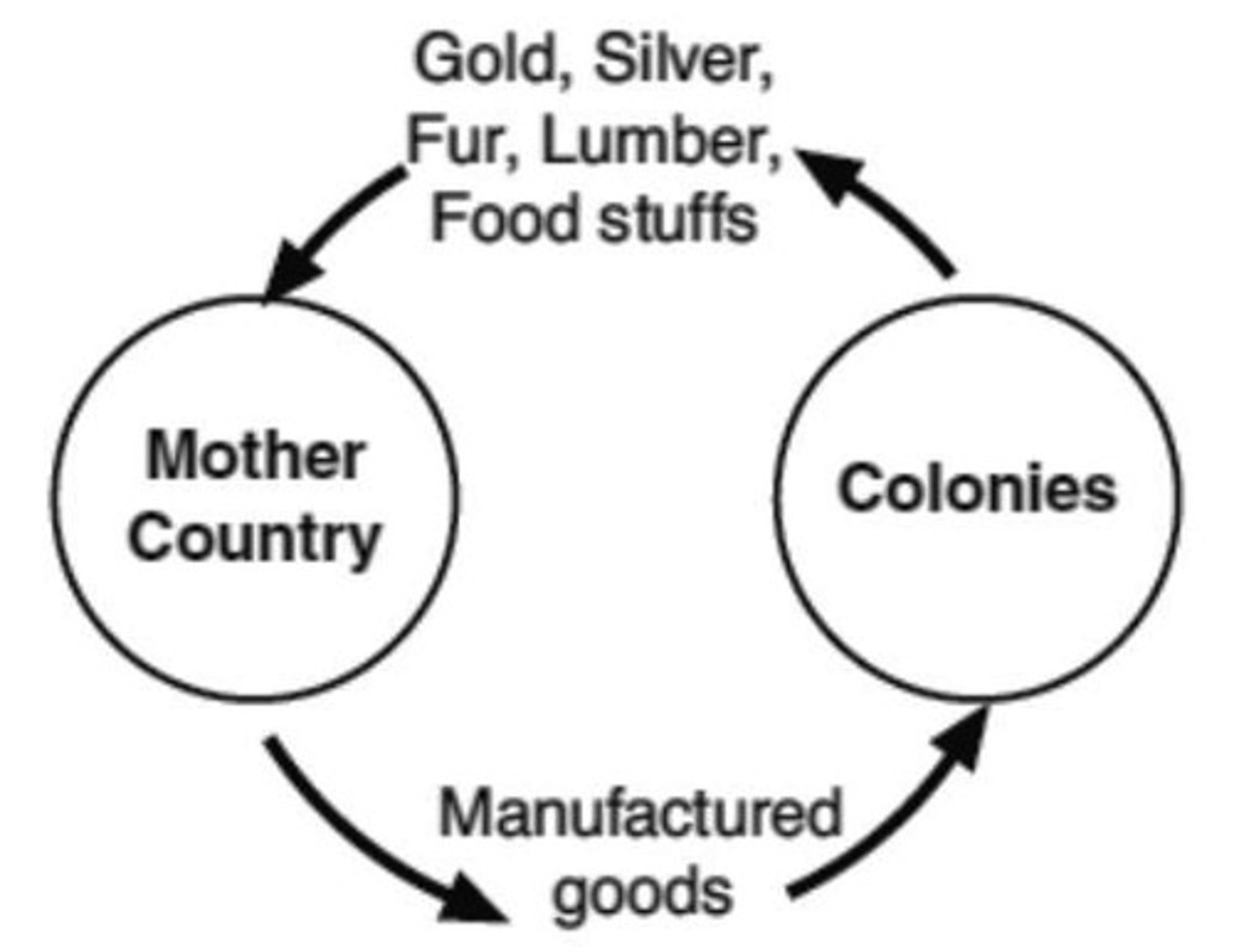
Salutary Neglect
allowed economic freedom and colonial self government (didn't enforce laws)
Enlightenment
a intellectual movement that emphasized reason and individual rights (the people give the government its power)
John Locke's Social Contract
the idea that government get their power from the consent of the governed (John Locke, Jaques Rousseau)
Proclamation Line of 1763
restricted colonial settlement west of the Appalachian mountains
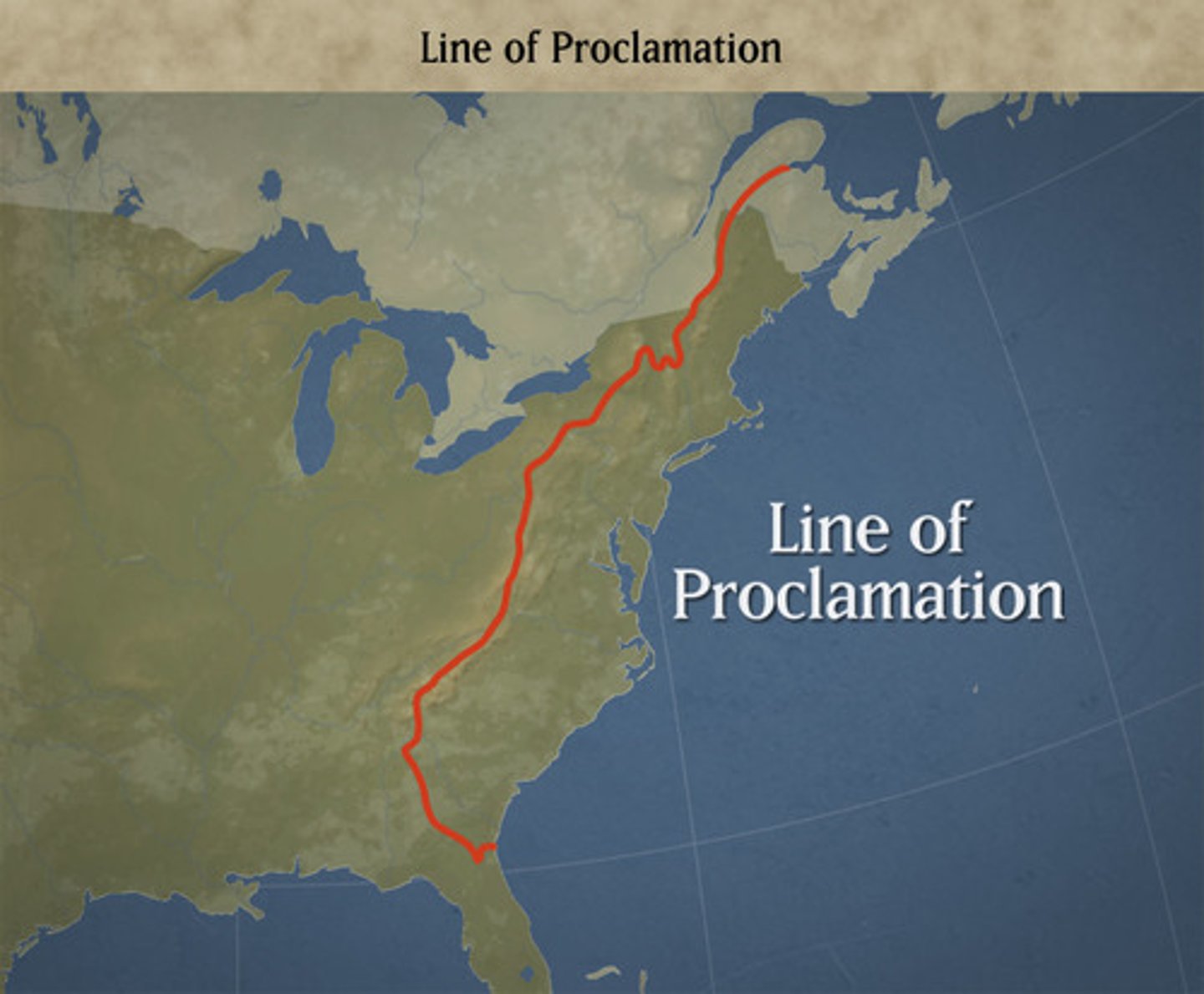
Quartering Act
colonists required to house British soldiers which ended salutary neglect
Stamp act
First direct tax on colonists (death stamp)
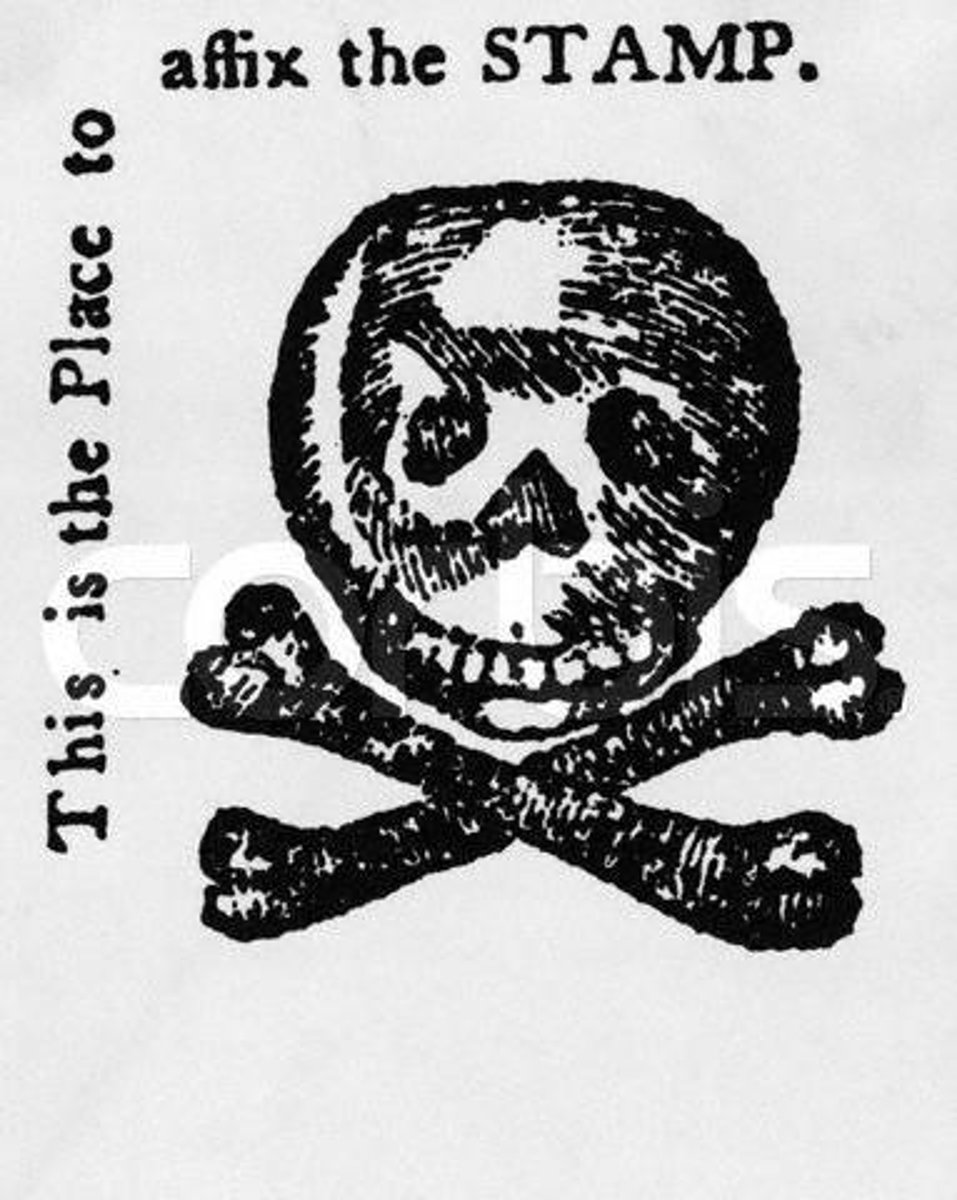
Townshed acts
taxes on imported goods like glass paper paint and tea
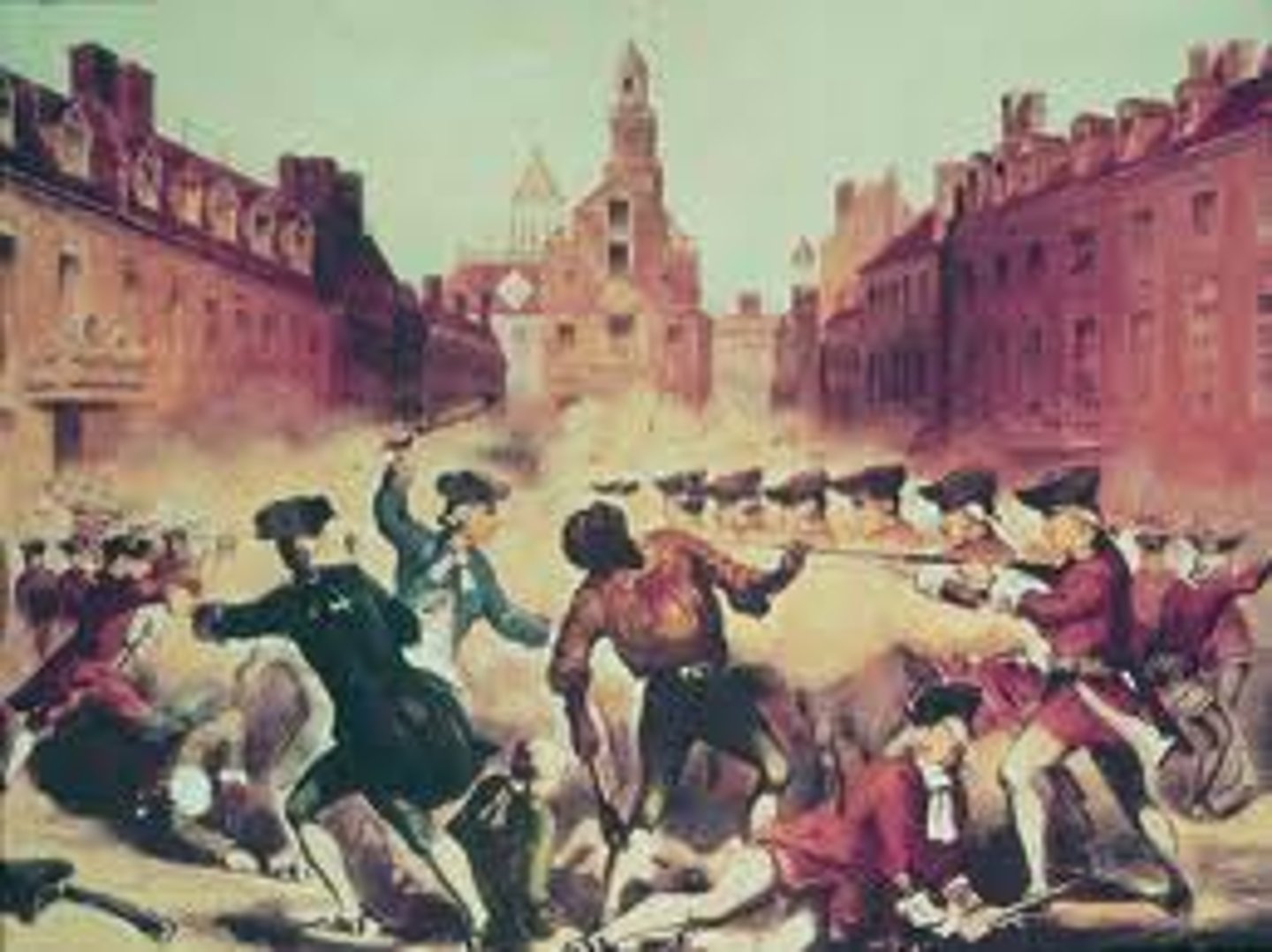
Boston Tea party
sons of liberty organized a protest against British taxes by dumping tea into the Boston harbor
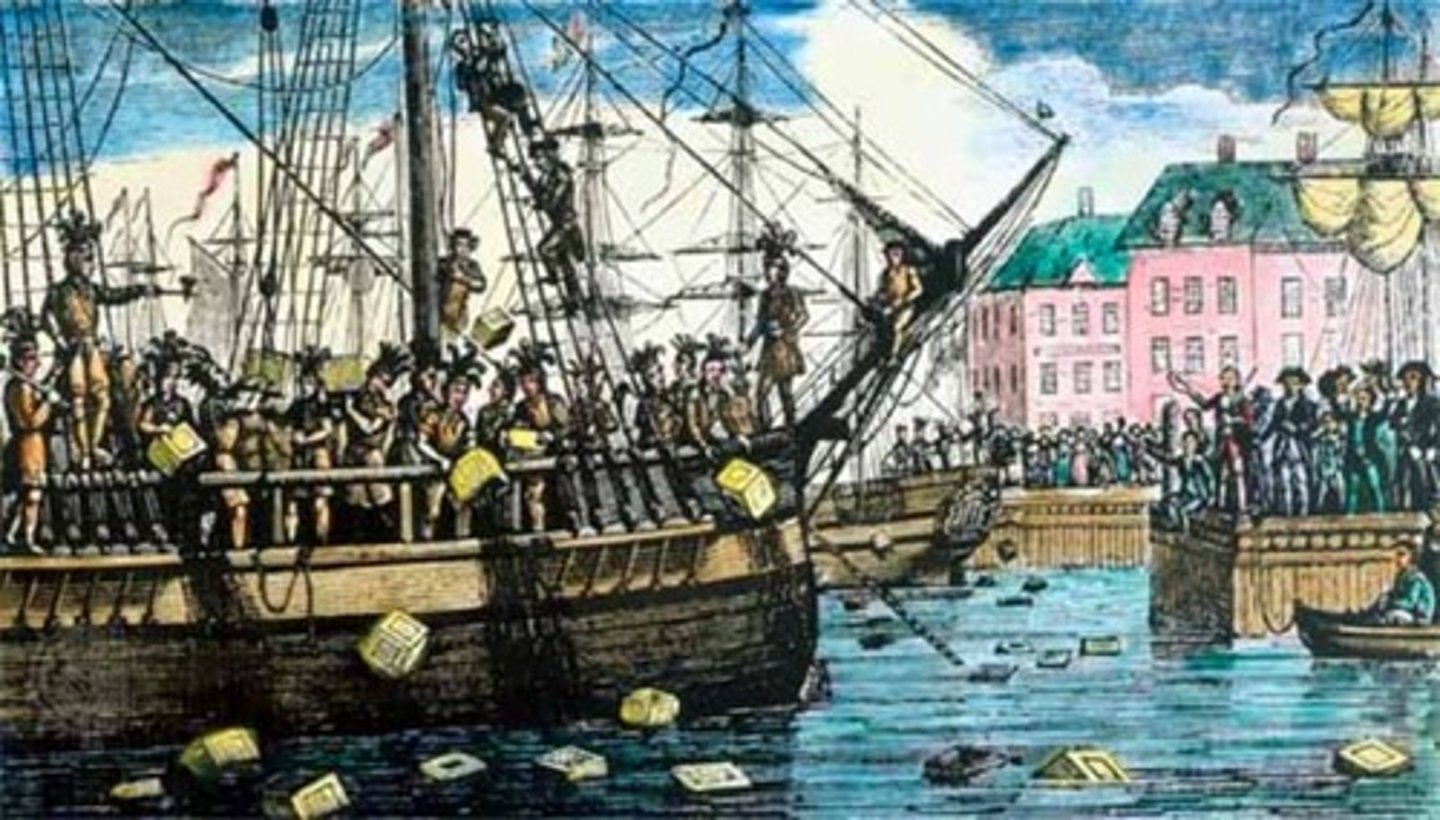
Sons of Liberty
A group of colonists who organized colonial resistance to oppose British policies
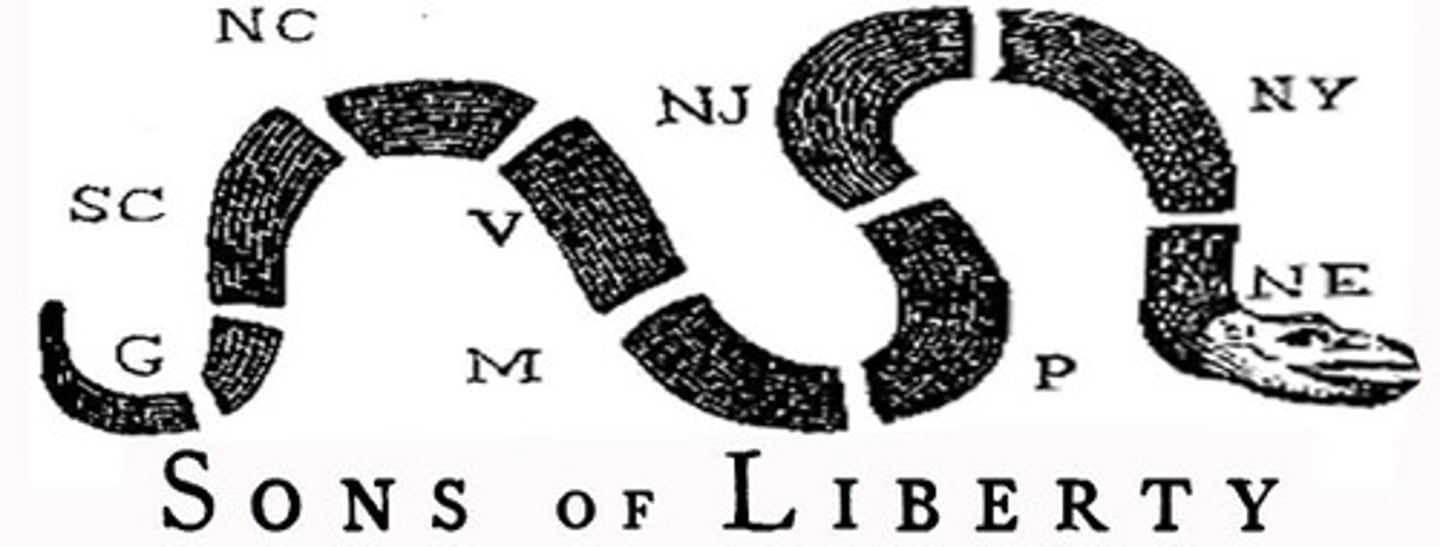
Boycotts
colonists refused to buy British goods to protest unfair taxes
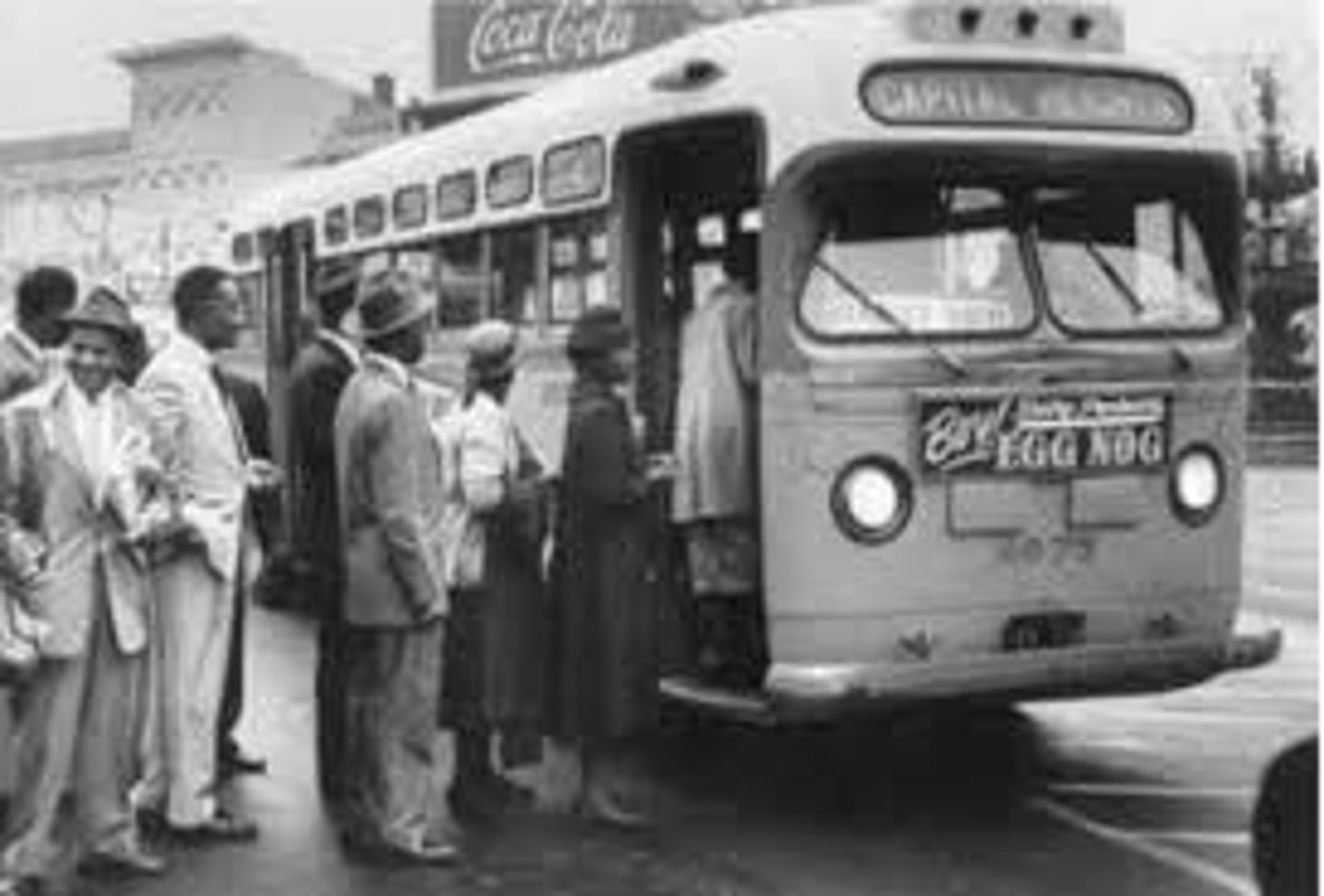
Coercive Acts/Intolerable Acts
punished Massachusettes for their protest at the Boston tea party
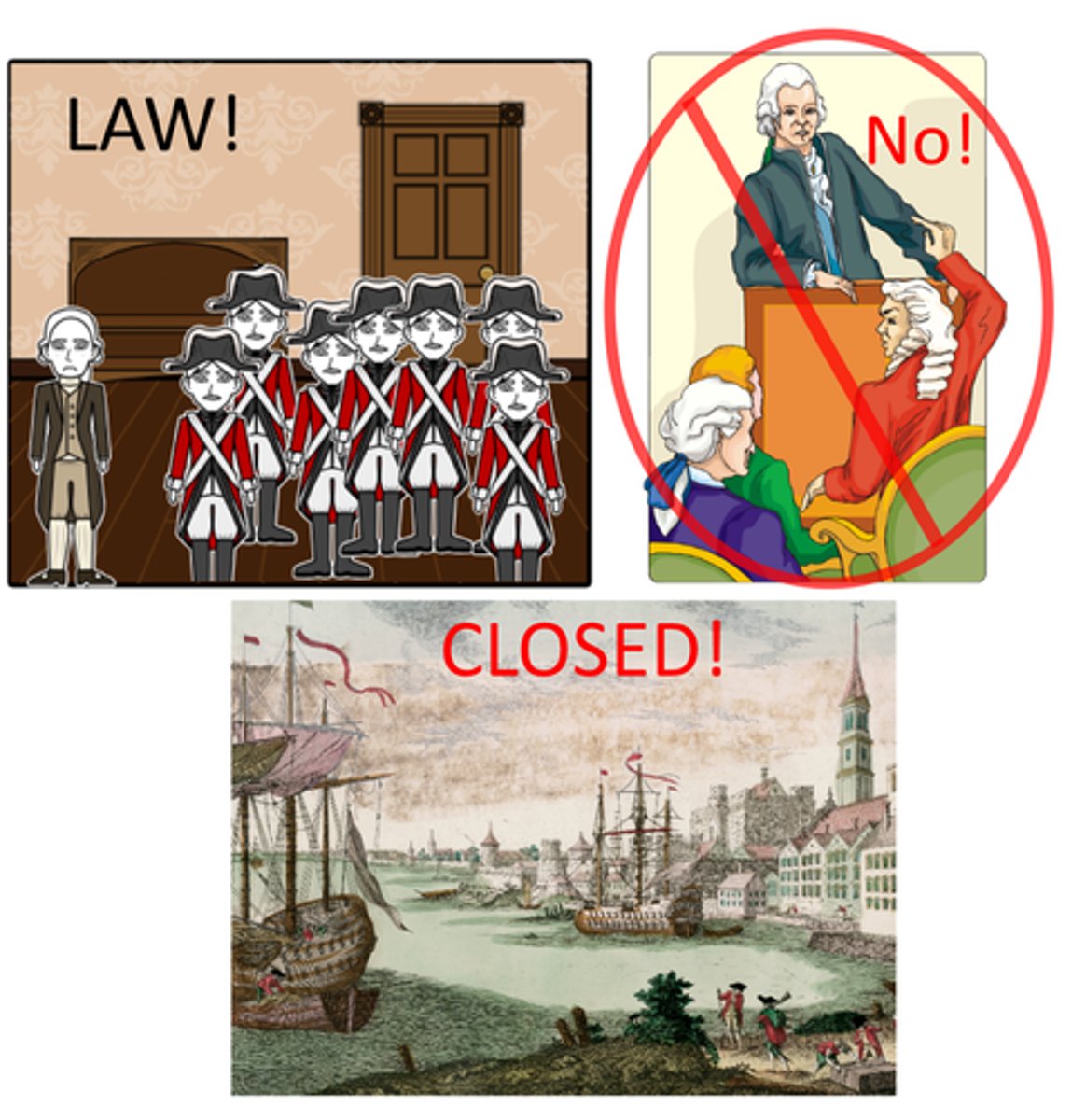
1st Continental Congress
colonial leaders met in Philadelphia in response to the intolerable acts
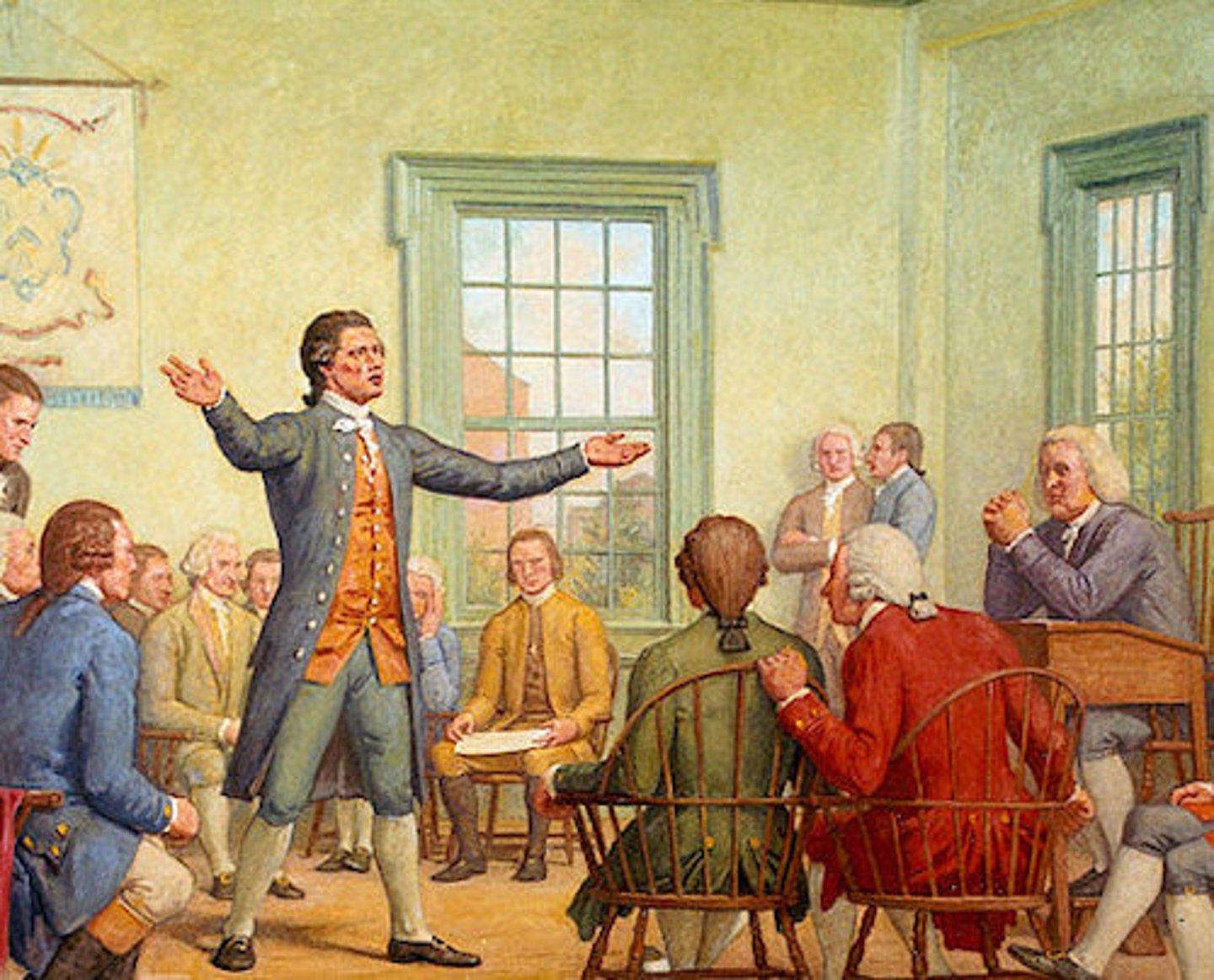
2nd Continental Congress
1)Sent the "Olive Branch Petition" 2)Created a continental army with George Washington as the leader. 3)Agreed to write a formal letter declaring their independence from Britian. (response to battle of Lexington and Concord)
Thomas Paine's Common Sense
Pamphlet arguing for independence from Britain (patriot)
George Washington Appointed Commander in Chief
leader of continental army at the and continental congress
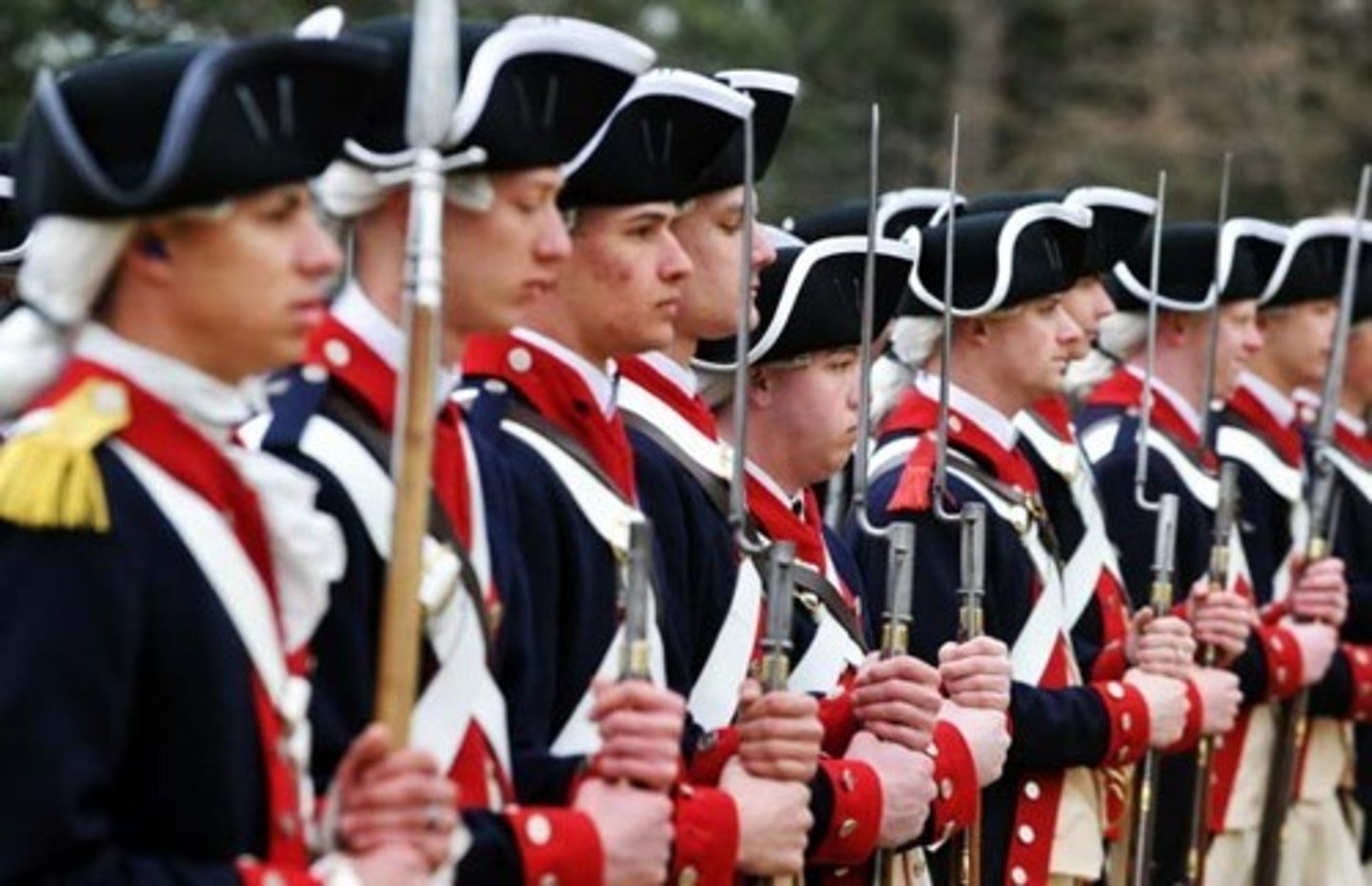
Decleration of Independence
a document stating that the 13 English colonies were a free and independent nation
Battle of Saratoga
American Revolution turning point, French alliance began
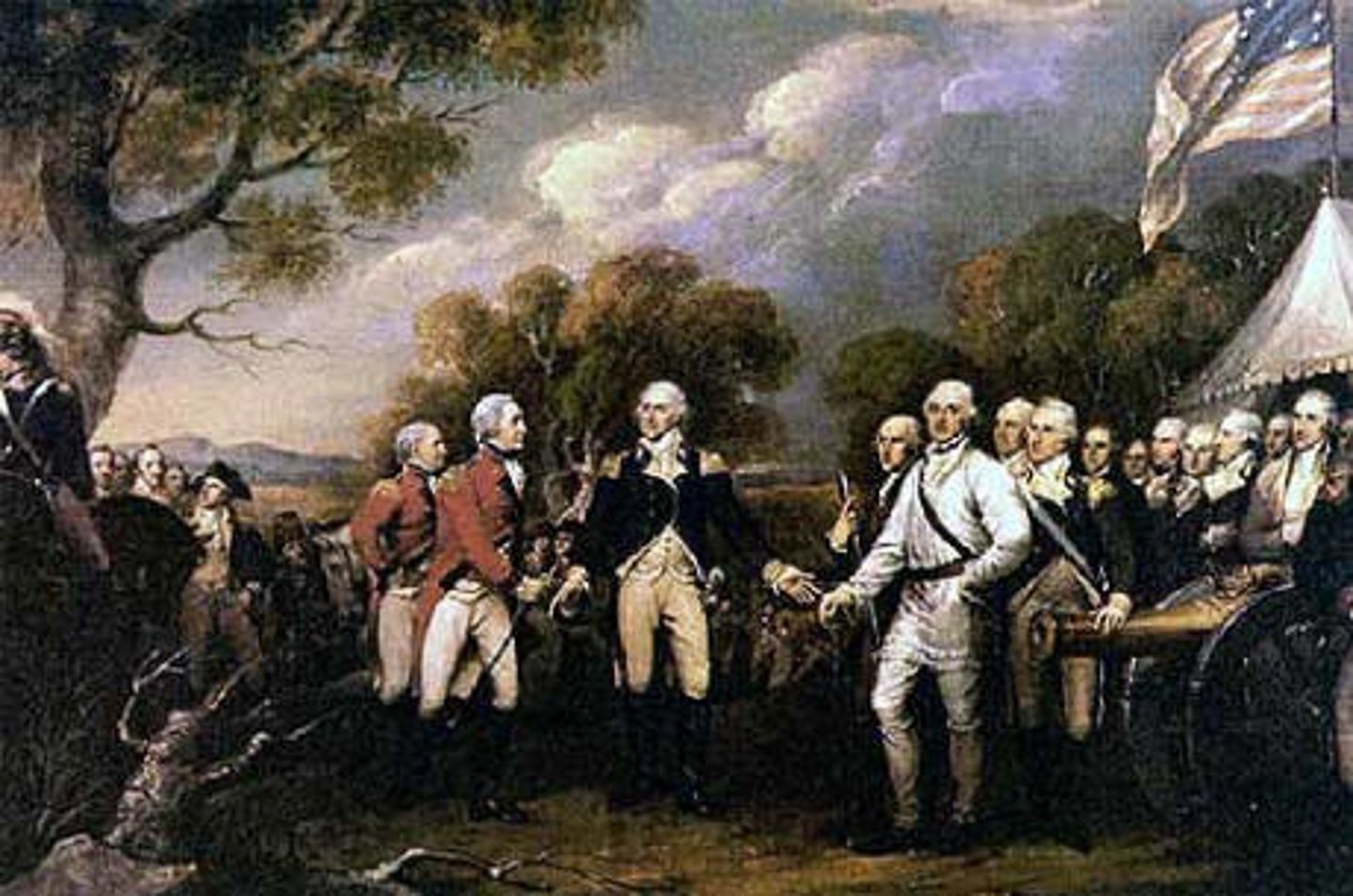
Treaty of Alliance with France
foreign alliance helped the U.S. win independence
Battle of Yorktown
Final major battle leading to British surrender, lead by George Washington
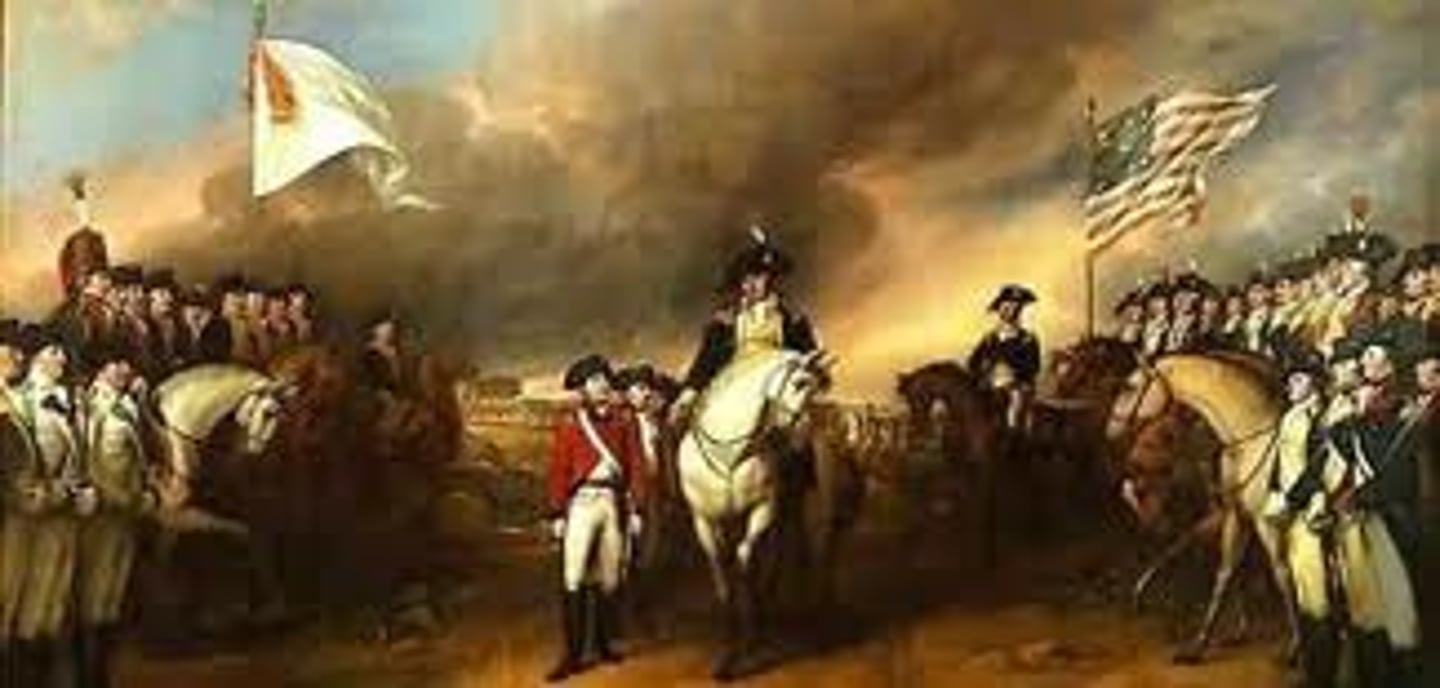
Treaty of Paris 1783
Britain recognizes American Independence (Mississippi river)
Articles of Confederation
1st Constitution of the U.S. (weaknesses-no executive, no judicial, no power to tax, no power to regulate trade, states had to much power, central goverment had barley any power)
Shay's Rebellion
Rebellion led by farmers in Massachusetts against high taxes and debt, the protest that exposed the weak government
Constitutional Convention
A meeting in Philadelphia in 1787 that produced a new constitution
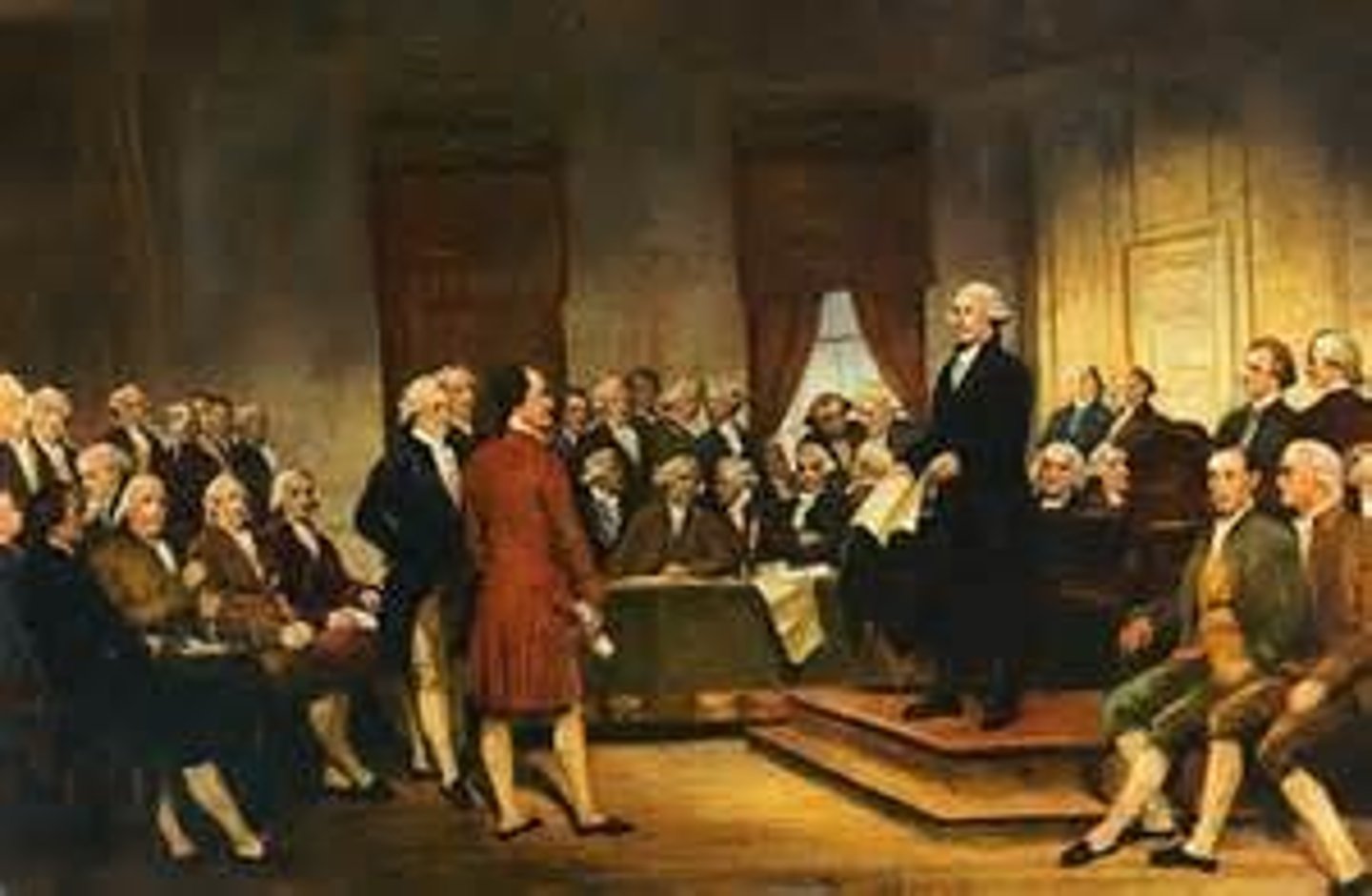
The Virgina plan proposed ____.
suggested representation based on population (led to great compromise, leg/exe/jud)
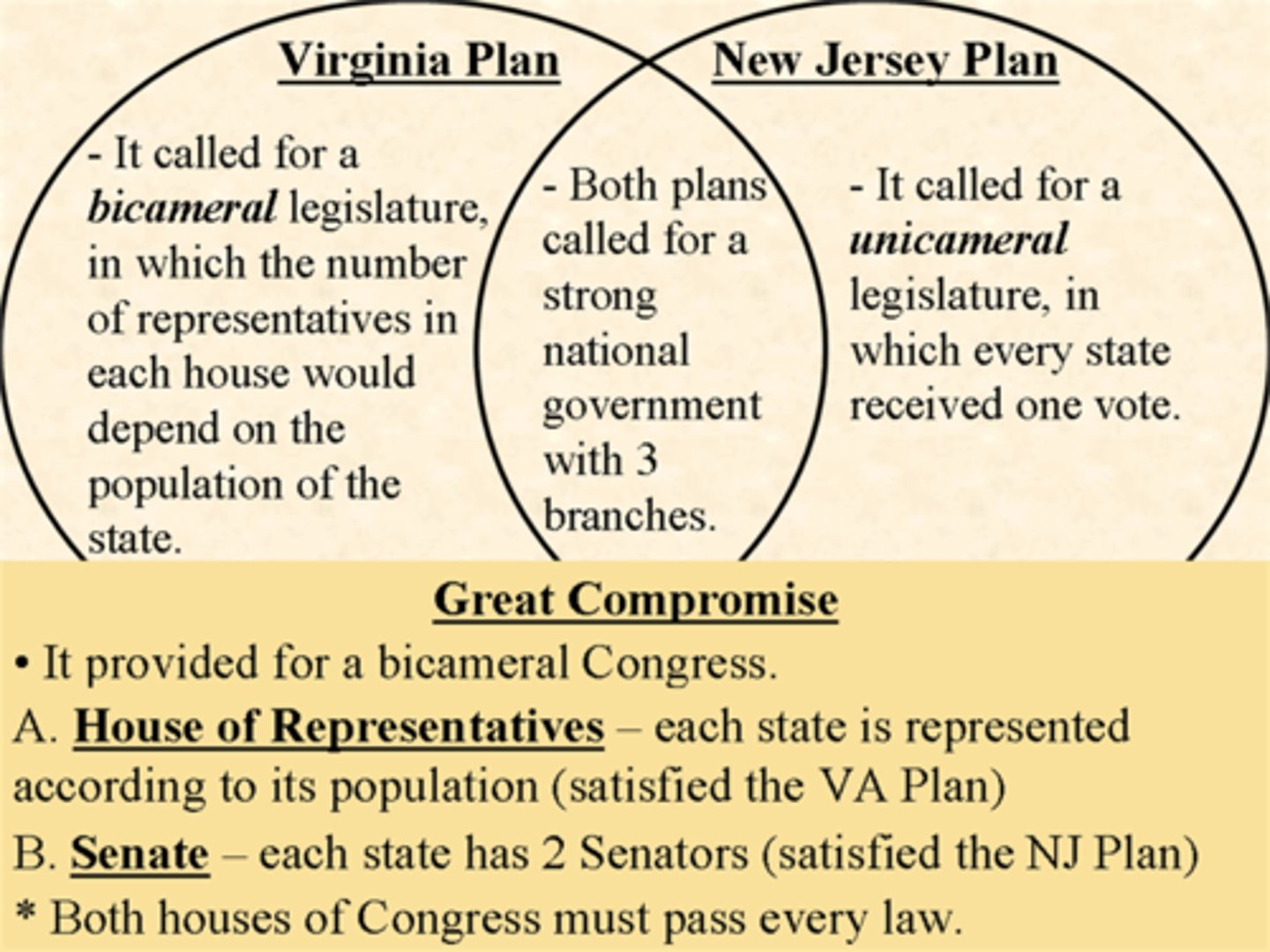
The New Jersey Plan proposed ____.
A Unicameral legislature with representation equal among the states.
3/5 Compromise
the decision at the Constitutional convention to count slaves as 3/5 of a person for representation
Northwest Ordinance
established a system for new states slavery banned in northwest territories
Great Compromise
Virgina plan + New Jersey plan to create a bicameral legislature with a balance of power
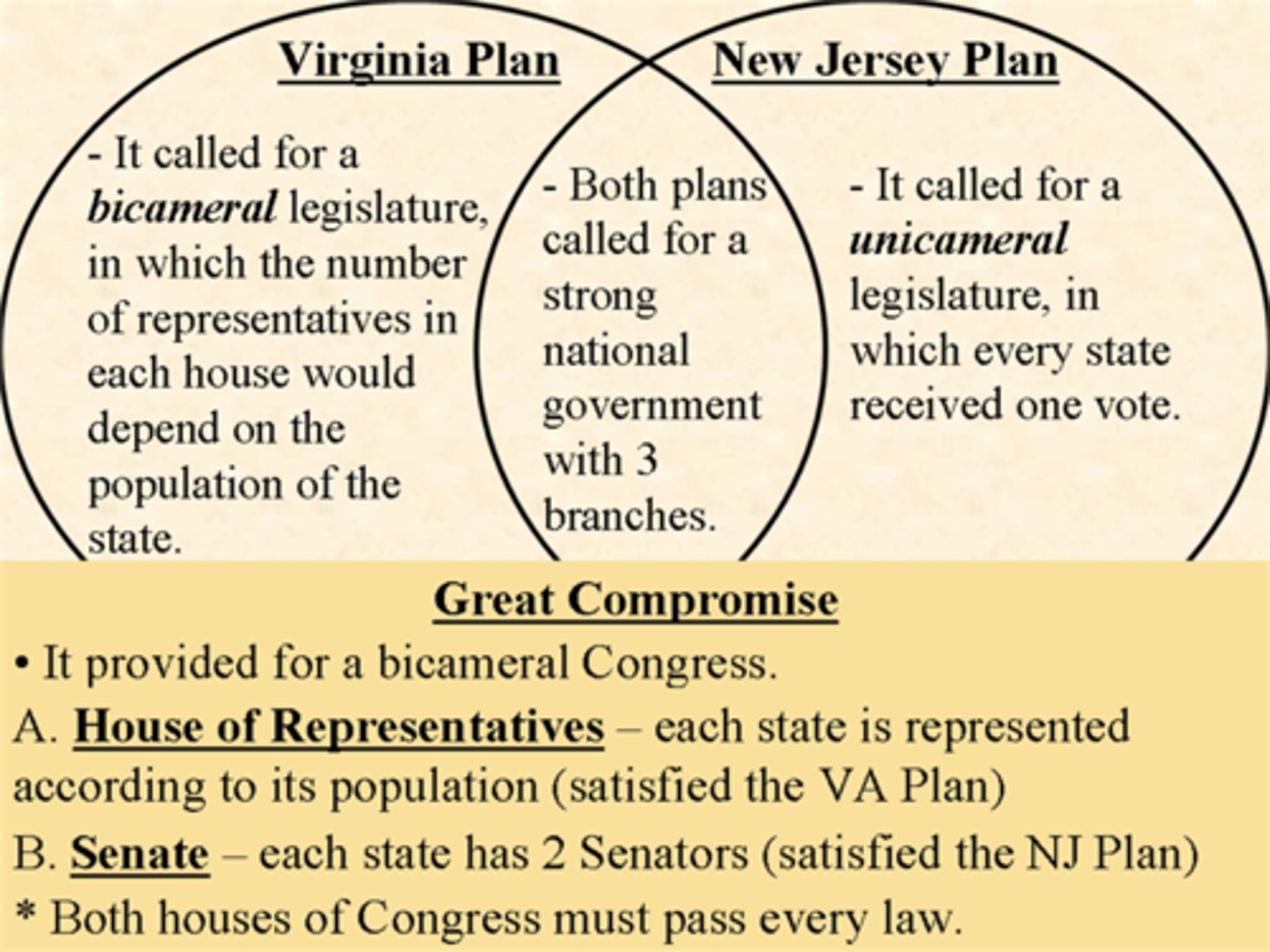
Bill of Rights
The first ten amendments to the Constitution, protects individual liberties and guarantees freedom on speech
Olive Branch Petition
A document sent by the Second Continental Congress to King George III, proposing a reconciliation between the colonies and Britain
1st Continental congress vs 2nd Continental congress
The first continental congress was a unified colonial response to British new policies and to agree on economic boycotts and enforcing them the 2nd continental congress happened after the fighting began and they decided to start an army and appoint George Washington as their commander and ultimately said it was best to declare independence from Britain
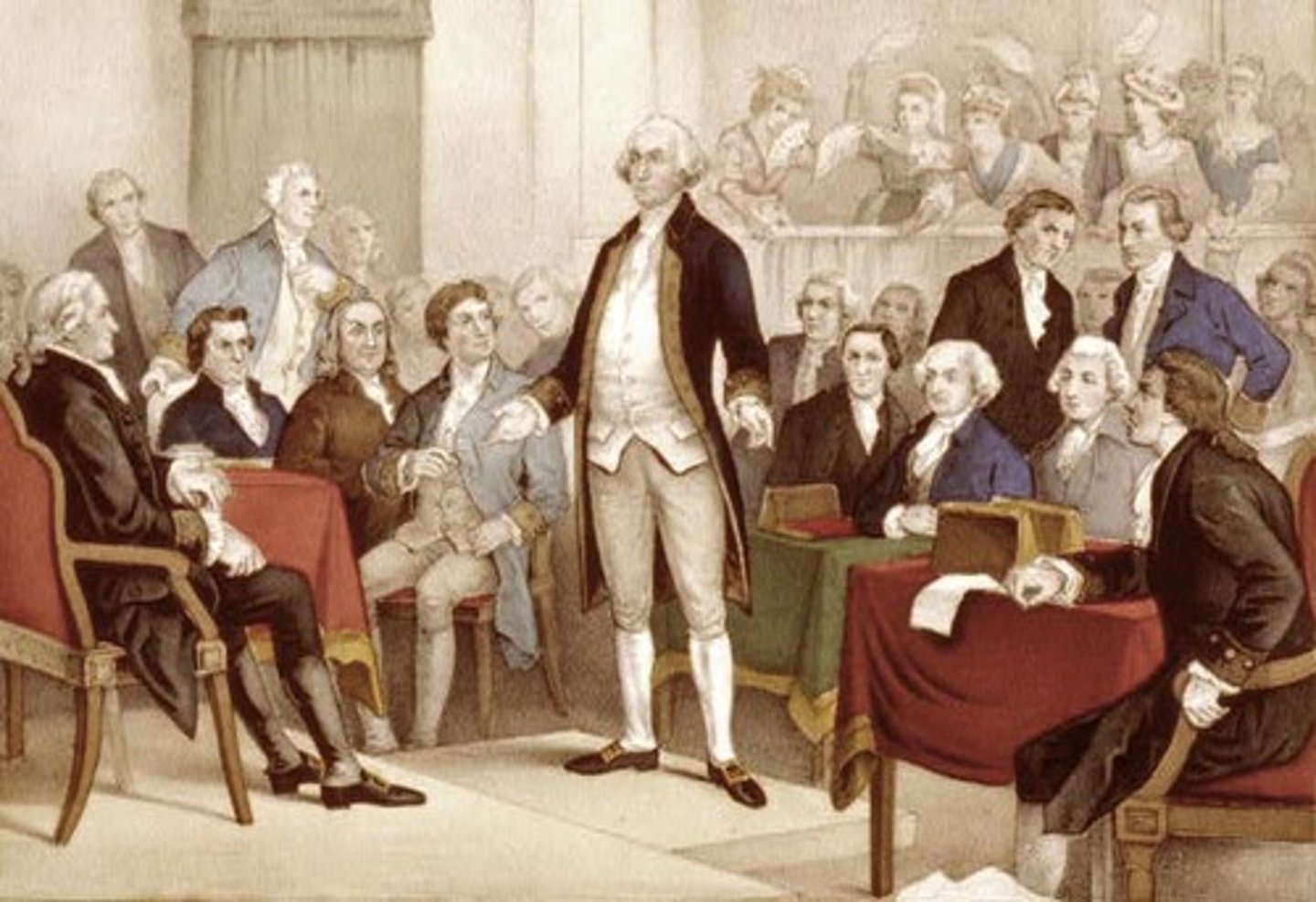
Which battle is the turning point in the American Revolution?
Battle of Saratoga
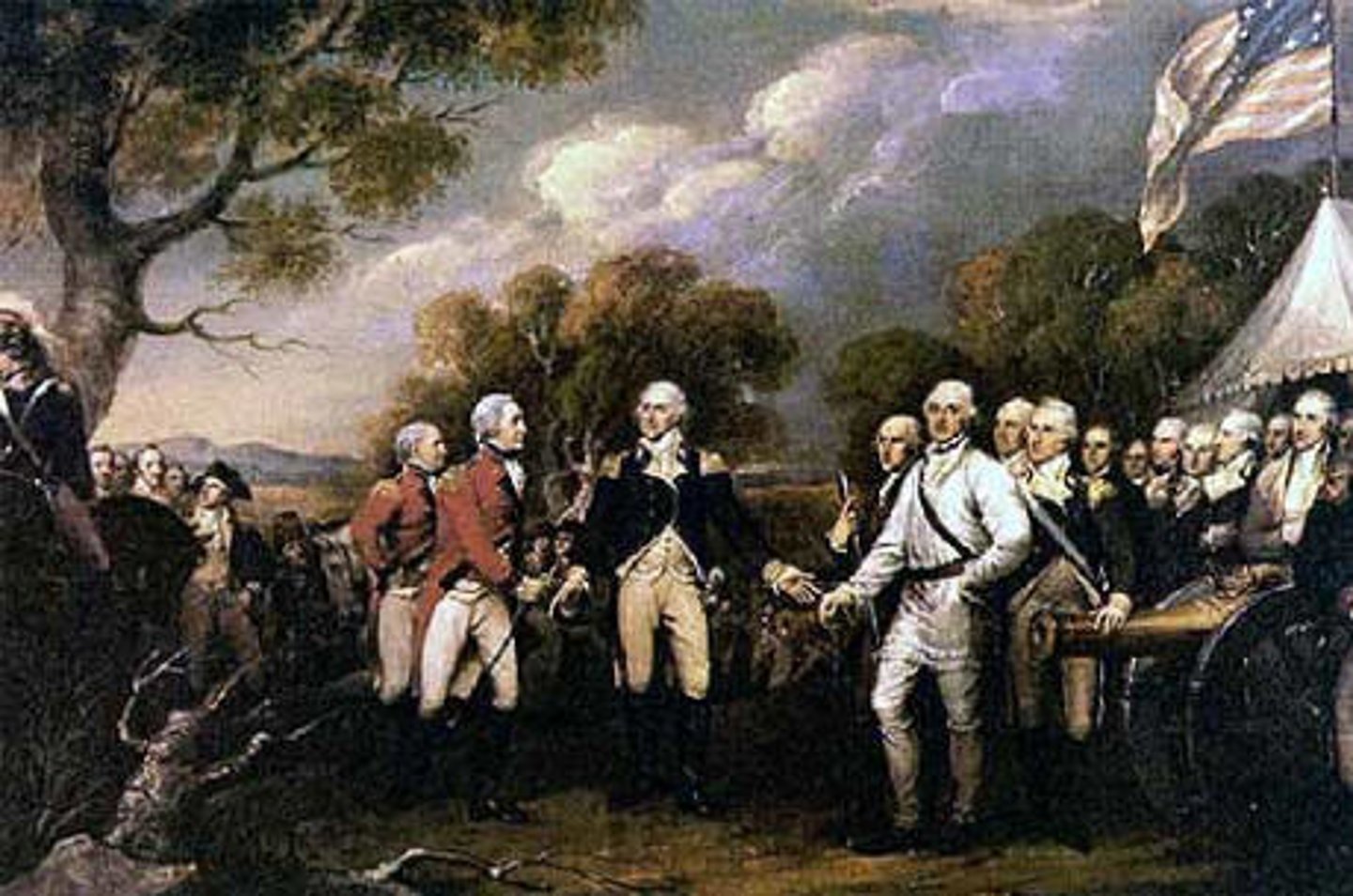
What is the impact on enlightenment ideas world wide?
social contract and individual rights
Boston Masssacre
5 colonists killed by British soldiers
